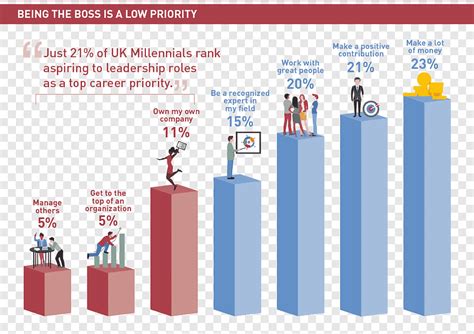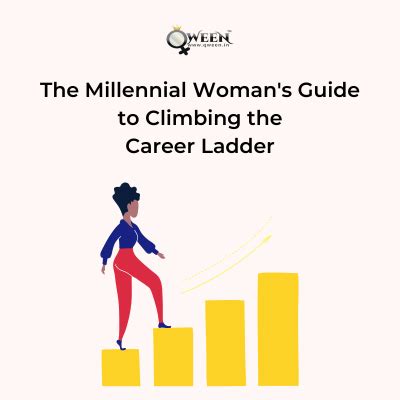
Millennials are increasingly expressing disillusionment with their career trajectories, reporting a growing sense of dread and burnout as they advance in their professional lives, a sentiment starkly captured by one millennial’s viral TikTok video.
The pervasive pressure to constantly climb the corporate ladder is taking a toll on millennial professionals, leading to widespread feelings of career dissatisfaction and a questioning of traditional career advancement models. The sentiment, encapsulated in a viral TikTok video that resonated with millions, highlights a growing disillusionment among millennials who find that the higher they climb, the more “deadly” their careers feel. This sense of foreboding stems from increased responsibilities, longer hours, and the realization that the rewards of career progression often fail to compensate for the personal sacrifices required.
The viral TikTok video, posted by a user named @corporatedeathspiral, struck a chord with countless millennials who echoed similar sentiments in the comments section. The video encapsulates the anxieties associated with the modern workplace, including the pressure to constantly perform, the fear of failure, and the feeling of being trapped in a cycle of endless work. The sense of dread isn’t just about long hours, but also about the feeling that one’s work isn’t making a meaningful contribution or aligning with personal values. This has spurred a re-evaluation of what career success truly means for this generation.
Many millennials are reconsidering traditional definitions of success, prioritizing work-life balance, mental health, and personal fulfillment over climbing the corporate ladder. The pressure to achieve traditional milestones such as homeownership, financial stability, and career advancement often clashes with the realities of a volatile job market and rising living costs. As a result, many millennials are seeking alternative career paths, such as entrepreneurship, freelancing, or pursuing passion projects that offer greater autonomy and flexibility.
The economic realities facing millennials, including student loan debt, stagnant wages, and rising housing costs, contribute to their career anxieties and disillusionment. The financial strain of these factors often leads to a sense of being stuck, with little opportunity for upward mobility or the pursuit of personal goals. This economic precarity exacerbates the feeling of being trapped in a “deadly” career, as many millennials feel forced to prioritize financial stability over personal fulfillment.
The evolving landscape of work, characterized by rapid technological advancements and globalization, has also played a role in shaping millennial career experiences. The constant pressure to adapt to new technologies and acquire new skills can be overwhelming, leading to a sense of burnout and a fear of obsolescence. The rise of the gig economy and remote work has offered some flexibility, but it has also blurred the lines between work and personal life, further contributing to the feeling of being constantly “on.”
The COVID-19 pandemic has further amplified millennial career anxieties, as many experienced job losses, pay cuts, or increased workloads. The pandemic also forced many to re-evaluate their priorities and consider what truly matters in their lives. As a result, many millennials are seeking more meaningful work that aligns with their values and offers a greater sense of purpose.
Experts suggest that employers need to address the underlying issues contributing to millennial career disillusionment, such as excessive workloads, lack of work-life balance, and a disconnect between employee values and company mission. Companies that prioritize employee well-being, offer opportunities for professional development, and foster a culture of transparency and communication are more likely to attract and retain millennial talent. Additionally, providing mental health resources and encouraging employees to take time off can help mitigate burnout and improve overall job satisfaction.
The viral TikTok video and the widespread discussion it sparked highlight a growing need for a re-evaluation of traditional career models and a greater focus on employee well-being. Millennials are not simply lazy or entitled; they are a generation grappling with unique economic and social challenges that require a new approach to work and career development. By addressing the underlying issues contributing to millennial career disillusionment, employers can create a more sustainable and fulfilling work environment for all.
The conversation ignited by @corporatedeathspiral reflects a broader cultural shift as millennials challenge conventional career norms. Many are turning to side hustles, entrepreneurial ventures, or downsizing their lifestyles to achieve greater autonomy and reduce work-related stress. This desire for control and flexibility is reshaping the labor market as millennials seek opportunities that align with their personal values and offer a sense of purpose beyond mere financial gain.
Companies that fail to adapt to these changing expectations risk losing valuable talent. Organizations that prioritize employee well-being, offer opportunities for growth and development, and foster a supportive and inclusive work environment are better positioned to attract and retain millennial employees. This includes providing mental health resources, promoting work-life balance, and creating a culture of open communication and feedback.
The millennial career crisis is not just a personal issue but also a societal one. Addressing the challenges facing this generation requires a collective effort from employers, policymakers, and educators. This includes addressing issues such as student loan debt, affordable housing, and access to healthcare, as well as promoting policies that support work-life balance and protect workers’ rights.
Ultimately, the millennial career shock is a wake-up call for a re-evaluation of what constitutes a successful career and a fulfilling life. By prioritizing well-being, purpose, and autonomy, millennials are paving the way for a more sustainable and meaningful approach to work. This shift has the potential to transform the labor market and create a more equitable and fulfilling work environment for generations to come.
The widespread adoption of remote work, accelerated by the pandemic, has offered some relief from the traditional office environment but has also presented new challenges. The blurring of boundaries between work and personal life has led to increased burnout and a feeling of being constantly “on.” As a result, many millennials are seeking strategies to manage their time, set boundaries, and prioritize their mental health.
The emphasis on continuous learning and skill development is also a key factor in addressing millennial career anxieties. The rapid pace of technological change requires workers to constantly adapt and acquire new skills to remain relevant in the job market. Employers can support this by providing opportunities for professional development, training programs, and mentorship.
The millennial generation’s experience with economic downturns, including the 2008 financial crisis and the COVID-19 pandemic, has shaped their attitudes towards work and career. These events have instilled a sense of economic insecurity and a skepticism towards traditional career paths. As a result, many millennials are prioritizing financial stability and security, while also seeking work that aligns with their values and offers a sense of purpose.
The conversation around millennial career shock also highlights the importance of mental health and well-being in the workplace. The pressure to perform, the fear of failure, and the constant connectivity can take a toll on mental health. Employers need to create a supportive and inclusive work environment that prioritizes mental health and provides access to mental health resources.
The viral TikTok video and the subsequent discussion have sparked a broader conversation about the future of work and the changing expectations of the millennial generation. As millennials continue to shape the labor market, their values and priorities will play a significant role in shaping the future of work. This includes a greater emphasis on work-life balance, purpose-driven work, and employee well-being.
The emphasis on purpose-driven work is particularly important for millennials, who often seek work that aligns with their values and allows them to make a positive impact on the world. Employers that can articulate a clear sense of purpose and demonstrate a commitment to social responsibility are more likely to attract and retain millennial employees.
The millennial career shock is not just about individual experiences but also about systemic issues that need to be addressed. This includes addressing issues such as income inequality, student loan debt, and access to affordable healthcare. Policymakers can play a role in creating a more equitable and sustainable economy that supports the well-being of all workers.
The rise of the gig economy has also had a significant impact on millennial career experiences. While the gig economy offers flexibility and autonomy, it also presents challenges such as income insecurity, lack of benefits, and limited opportunities for advancement. Policymakers need to address these challenges by providing protections for gig workers and ensuring that they have access to essential benefits such as healthcare and retirement savings.
The millennial career shock is a complex and multifaceted issue that requires a holistic approach. By addressing the underlying economic, social, and technological factors that contribute to millennial career anxieties, employers, policymakers, and educators can create a more sustainable and fulfilling work environment for all.
The long-term consequences of millennial career disillusionment could have significant implications for the economy and society as a whole. If millennials continue to experience high levels of burnout and dissatisfaction, it could lead to decreased productivity, innovation, and economic growth. It is therefore essential to address the underlying issues contributing to millennial career anxieties and create a more sustainable and fulfilling work environment for this generation.
The growing awareness of mental health issues in the workplace is also contributing to the millennial career shock. Many millennials are more open about discussing their mental health challenges and are seeking support from their employers and colleagues. This has led to a greater emphasis on mental health resources and a more supportive and inclusive work environment.
The millennial career shock is not just a Western phenomenon but is also being observed in other parts of the world. In many countries, millennials are facing similar challenges such as economic insecurity, job market volatility, and a lack of work-life balance. This suggests that the millennial career shock is a global issue that requires a global response.
The rise of social media has also played a role in shaping millennial career experiences. Social media platforms provide a platform for millennials to share their experiences, connect with others, and seek support. However, social media can also contribute to feelings of anxiety and comparison, as millennials compare themselves to others and feel pressure to project a perfect image of success.
The millennial career shock is a call to action for employers, policymakers, and educators to create a more sustainable and fulfilling work environment for this generation. By addressing the underlying economic, social, and technological factors that contribute to millennial career anxieties, we can create a more equitable and prosperous future for all.
The rise of artificial intelligence (AI) and automation is also contributing to millennial career anxieties. Many millennials fear that their jobs will be replaced by AI and automation, leading to job displacement and economic insecurity. Employers need to provide training and support to help millennials adapt to these technological changes and acquire the skills needed to thrive in the future of work.
The millennial career shock is a complex and multifaceted issue that requires a long-term perspective. By investing in education, training, and support for millennials, we can create a more resilient and adaptable workforce that is prepared to meet the challenges of the future.
The millennial career shock is a reflection of a broader societal shift towards a more holistic and purpose-driven approach to work and life. Millennials are seeking work that aligns with their values, offers a sense of purpose, and allows them to make a positive impact on the world. This shift has the potential to transform the labor market and create a more equitable and fulfilling work environment for generations to come.
The millennial career shock is a wake-up call for a re-evaluation of traditional career models and a greater focus on employee well-being. By prioritizing well-being, purpose, and autonomy, we can create a more sustainable and meaningful approach to work that benefits both individuals and society as a whole.
Frequently Asked Questions (FAQ)
1. What is the “millennial career shock” described in the article?
The “millennial career shock” refers to a growing sense of disillusionment and dread experienced by millennials as they progress in their careers. It stems from increased responsibilities, longer hours, and the realization that the rewards of career advancement often fail to compensate for the personal sacrifices required. This feeling is amplified by economic pressures such as student loan debt and rising living costs.
2. What are the main factors contributing to this sense of disillusionment?
Several factors contribute to this phenomenon:
- Economic pressures: Student loan debt, stagnant wages, and rising housing costs create financial strain.
- Work-life imbalance: Increased workloads and expectations blur the lines between work and personal life.
- Lack of purpose: Feeling that one’s work isn’t meaningful or aligned with personal values.
- Technological advancements: The constant pressure to adapt to new technologies and acquire new skills.
- Economic uncertainty: Economic downturns and the rise of the gig economy create job insecurity.
3. How has the COVID-19 pandemic impacted millennial career experiences?
The COVID-19 pandemic has further amplified millennial career anxieties. Many experienced job losses, pay cuts, or increased workloads. The pandemic also forced many to re-evaluate their priorities and consider what truly matters in their lives, leading to a greater desire for meaningful work and work-life balance.
4. What can employers do to address the millennial career shock and improve employee well-being?
Employers can take several steps to address this issue:
- Prioritize employee well-being: Offer mental health resources and encourage employees to take time off.
- Promote work-life balance: Implement policies that support flexible work arrangements and reduce excessive workloads.
- Foster a culture of transparency and communication: Create an environment where employees feel comfortable sharing their concerns and providing feedback.
- Offer opportunities for professional development: Provide training programs and mentorship to help employees grow and develop their skills.
- Align company mission with employee values: Articulate a clear sense of purpose and demonstrate a commitment to social responsibility.
5. What are some alternative career paths that millennials are exploring in response to this disillusionment?
Many millennials are seeking alternative career paths that offer greater autonomy, flexibility, and purpose. These include:
- Entrepreneurship: Starting their own businesses to pursue their passions and control their work lives.
- Freelancing: Working as independent contractors to gain flexibility and diversify their income.
- Side hustles: Pursuing passion projects or part-time jobs alongside their main careers.
- Downsizing: Reducing their expenses and simplifying their lifestyles to reduce financial stress and prioritize personal well-being.
- Purpose-driven work: Seeking employment in industries or organizations that align with their values and allow them to make a positive impact.









